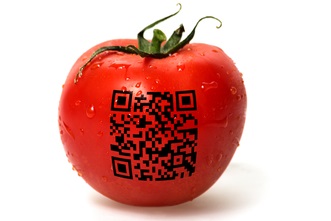
As the barriers associated with implementing serialization are coming down, the food and beverage sector is increasingly open to using the technology to secure its supply chains.
That is the view of Thomas Körmendi, chief executive of serialization provider Kezzler, who says companies and brands are "increasingly motivated to explore [serialization] because costs are coming down at the same time as the benefits are becoming clearer."
"These benefits range from identifying opportunities to generate savings in the supply chain, to making recall and crisis procedures more robust, which keeps consumers, regulators and investors happy, as well as opening up another channel for nurturing brand loyalty with consumers," he told SecuringIndustry.com.
Kezzler cut its teeth providing serialization services to the pharmaceutical sector, partnering with Pfizer in six countries in Asia to support drug products such as erectile dysfunction therapy Viagra and cholesterol-lowerer Lipitor, Roche in India (protecting cancer drugs Avastin and Herceptin) and GlaxoSmithKline's antibiotic Augmentin Africa.
Now, the company is starting to move into additional sectors such as food and fast-moving consumer goods, running large-scale pilot projects for customers in both sectors, and according to Körmendi is "currently executing of what we believe is the biggest pre-serialization and consumer engagement project in the world for a well-known FMCG company."
The pharma sector has embraced serialization – largely because of regulatory mandates of course – but the food and beverage sector has been much slower despite a growing emphasis on traceability and the provenance of food in the face of a steady stream of food fraud incidents hitting the headlines.
In April, a joint Interpol-Europol operation (Opson VI) seized food and drink worth an estimated €230ms, uncovering bogus and substandard goods ranging from alcohol, mineral water and seasoning cubes to fraudulent seafood, olive oil and caviar. And it seems the food and beverage sector is increasingly open to adopting a technological solution to the problem of illicit trade.
"Previously the most receptive sectors tended to be higher value or luxury items," says Körmendi. "However, as the technology to serialize has become more competitive - and the advantages of doing so better understood - this is rapidly changing. The Internet of Packaging is here. The smart packaging market has been projected to reach $26.7bn by 2024 and the food industry will be a big part of this."
Aside from fighting counterfeits and securing their supply chains, how else can food and beverage companies in particular benefit from serializing their products? Körmendi gives the example of a hypothetical craft brewer - dubbed Forrester Fine Ales of Cambridge – that adopts serialization and digital mass encryption.
As a result, it can identify in in real-time when shipments go astray or are over-exposed to conditions such as heat that may compromise the quality or safety of the product. When problems with a product are identified the company can scan items to trace back to the point of failure and identify products from the exact batch to recall them, minimising the recall. Through the same channel – the same code, consumers can authenticate the products before purchase by scanning the code using a smart phone.
Serialization technology can also help manufacturers identify areas where they can cut costs, according to Körmendi. Unique, interactive codes allow them to analyse exactly where their products are at each stage of the production and delivery process and for how long. This information can be used by manufactures to then better optimise distribution and avoid inventory shrinkage and waste.
It can also help mitigate a crisis, he points out. Should a situation arise that requires product recall – such as contamination - manufacturers have access to technology that traces every product down to the ingredient level, and this can help define the parameters of a recall, minimise waste, and reduce the time it takes to tackle the issue without compromising on safety.
"The beverage company can also make further use of this same technology by encouraging customers to share their personal information with the company if they wish, incentivising them with promotions," says Kezzler's CEO. "As a result Forrester Fine Ales is able to derive critical consumer insight to inform their research and future product development."
"They have not only adopted a platform for brand protection and track-and-trace, but also for engaging customers and nurturing brand loyalty."
One reason sometimes put forward for the slow uptake in serialization in the food industry is concern that serialized packaging lines may not be able to operate at high volumes while maintaining low costs.
One way to tackle this, according to Kezzler, is to adopt a pre-serialization strategy, which involves adding a unique code into the product packaging that is activated at a later stage via the cloud. The company developed its pre-serialization platform MaxQ with partner Amcor under an agreement set up in 2015.
"Pre-serialization means there is no additional time required during the production phase and serialization can take place without slowing down operations by even a second," says Körmendi. "The platform's ease of use and minimal operational burden provides a highly cost-effective solution for global brands."
©
SecuringIndustry.com





